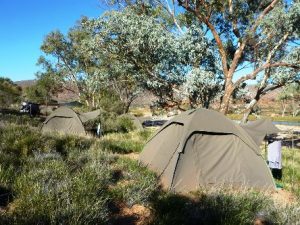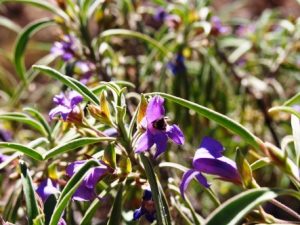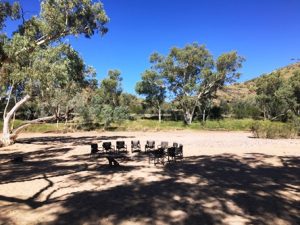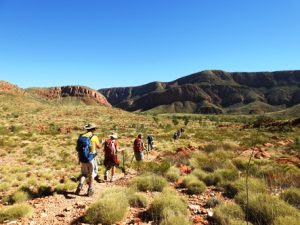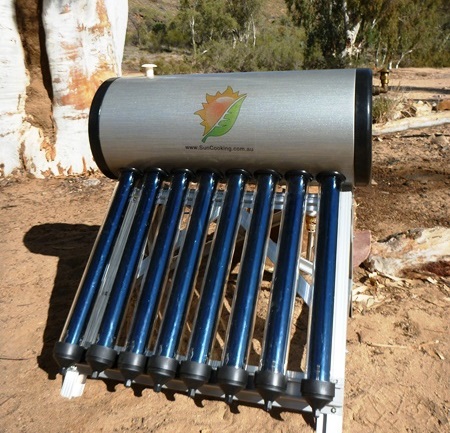
We are truly privileged to work in one of Australia’s most amazing desert wilderness areas and we have a very strong commitment to preserving and protecting the West MacDonnell’s National Park. Our guests are given practical firsthand experiential learning experiences every day they travel with us, for example using our waterless composting toilet systems.
These are some ways that Trek Larapinta ensures that negative impacts are kept minimal and we proactively work towards protecting this special country:
We operate with small groups – having a small group leads to personal group management and a softer environmental footprint.
All our treks have been continually accredited as Advanced Eco certified for tourism in natural areas focusing on optimal resource use, conservation practices and their help to support local communities.
Trek Larapinta adheres to minimal impact bushwalking principles and a ‘leave no trace’ policy.
A portion of our permit and licensing fees actively contribute to conservation of the West MacDonnell National Park.
Our collaborative volunteer projects work on trail maintenance and other environmental issues connected to the Larapinta Trail.
We avoid purchasing disposable materials trying as much as possible to buy in bulk to avoid excess packaging.
We are aware of food mileage and think critically when it come to our menus and food quality supplied on tour.
All our eco-campsites are established to minimise water wastage and highlight this precious resource in the desert environment we travel through – on average, each person consumes 8 litres of water per day – This includes drinking water, bathing and dish washing and is the equivalent of flushing a domestic toilet once.
We use biochar and sand filtration systems in combination with high quality biodegradable cleaning products to minimise negative impacts to our camp environment.
We have designed and installed waterless composting toiles, which provide a smell-free and sanitary toileting system.
Our campsites operate energy neutral. We have installed solar panels at all our semi-permanent campsites and on our trailers which power our lights and refrigeration systems.
Solar cooking systems are used to heat water and cook food.



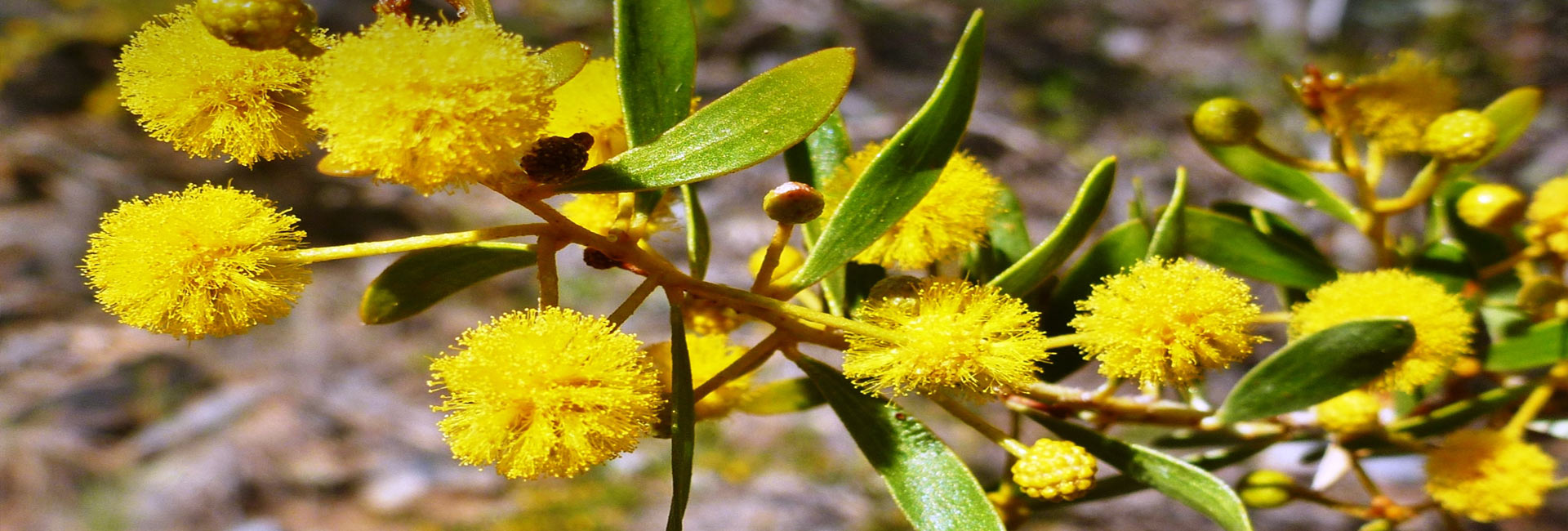
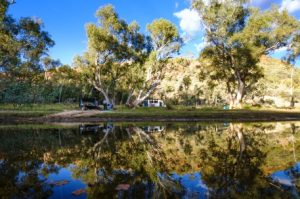
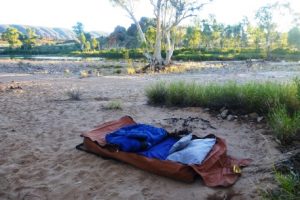
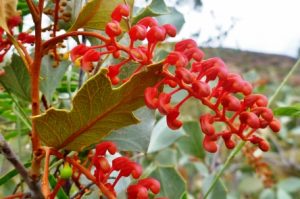
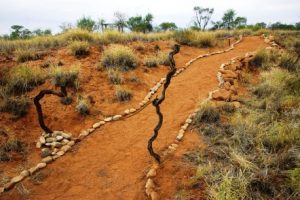

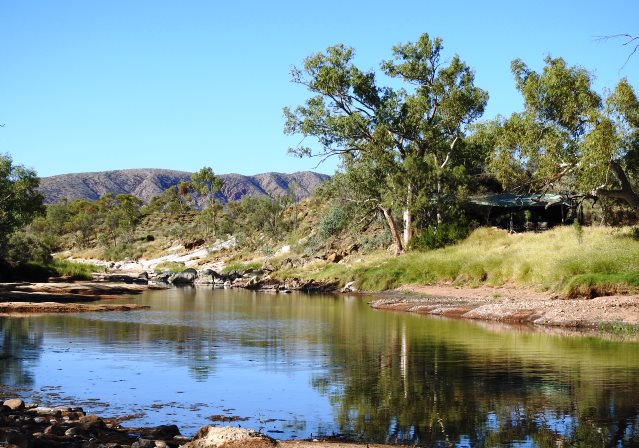
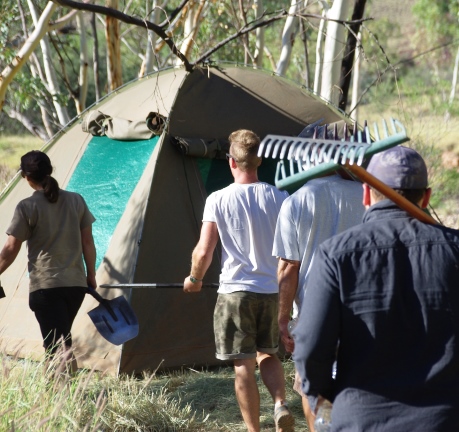 By engaging local Alice Springs producers, suppliers and service providers, Trek Larapinta creates strong social and economic ties with the community. We believe that by increasing local capacity building, our ecotourism business can be effective as a vehicle for empowering the local community.
By engaging local Alice Springs producers, suppliers and service providers, Trek Larapinta creates strong social and economic ties with the community. We believe that by increasing local capacity building, our ecotourism business can be effective as a vehicle for empowering the local community.
 We are truly privileged to work in one of Australia’s most amazing desert wilderness areas and we have a very strong commitment to preserving and protecting the West MacDonnell’s National Park. Our guests are given practical firsthand experiential learning experiences every day they travel with us, for example using our waterless composting toilet systems.
We are truly privileged to work in one of Australia’s most amazing desert wilderness areas and we have a very strong commitment to preserving and protecting the West MacDonnell’s National Park. Our guests are given practical firsthand experiential learning experiences every day they travel with us, for example using our waterless composting toilet systems.
